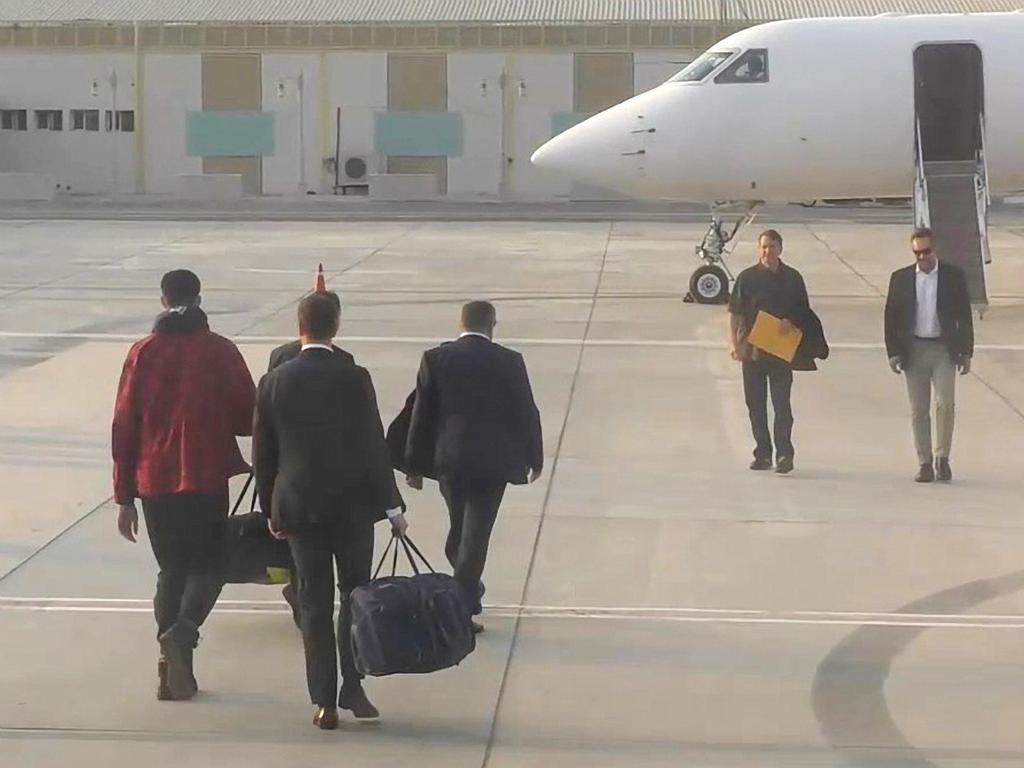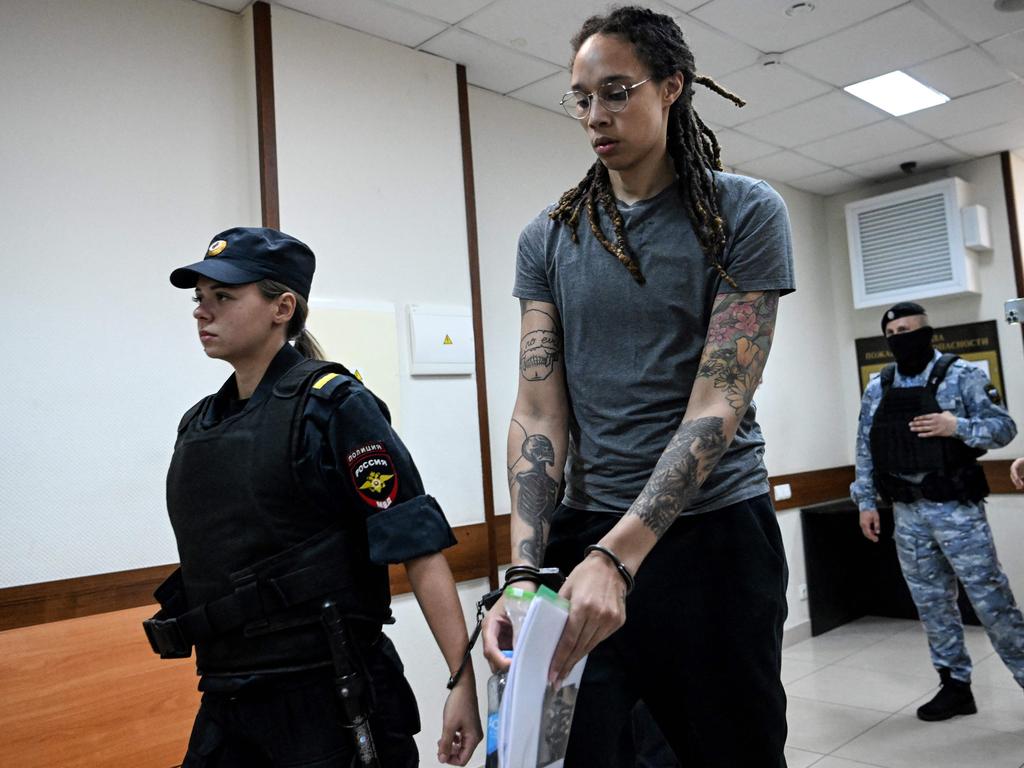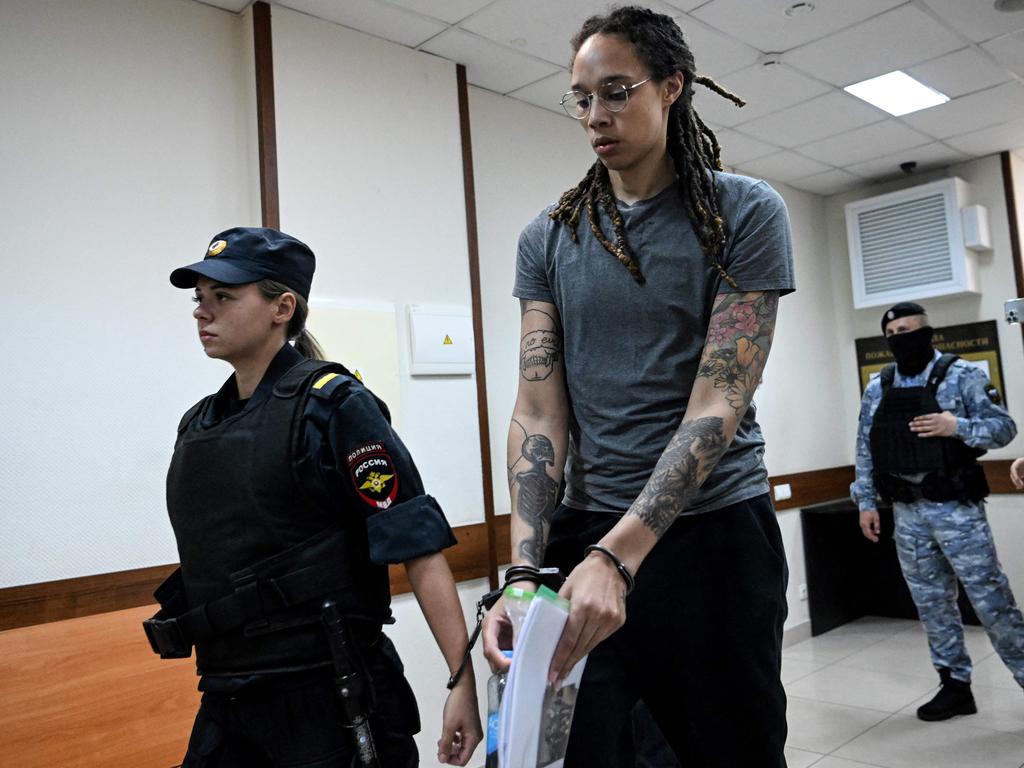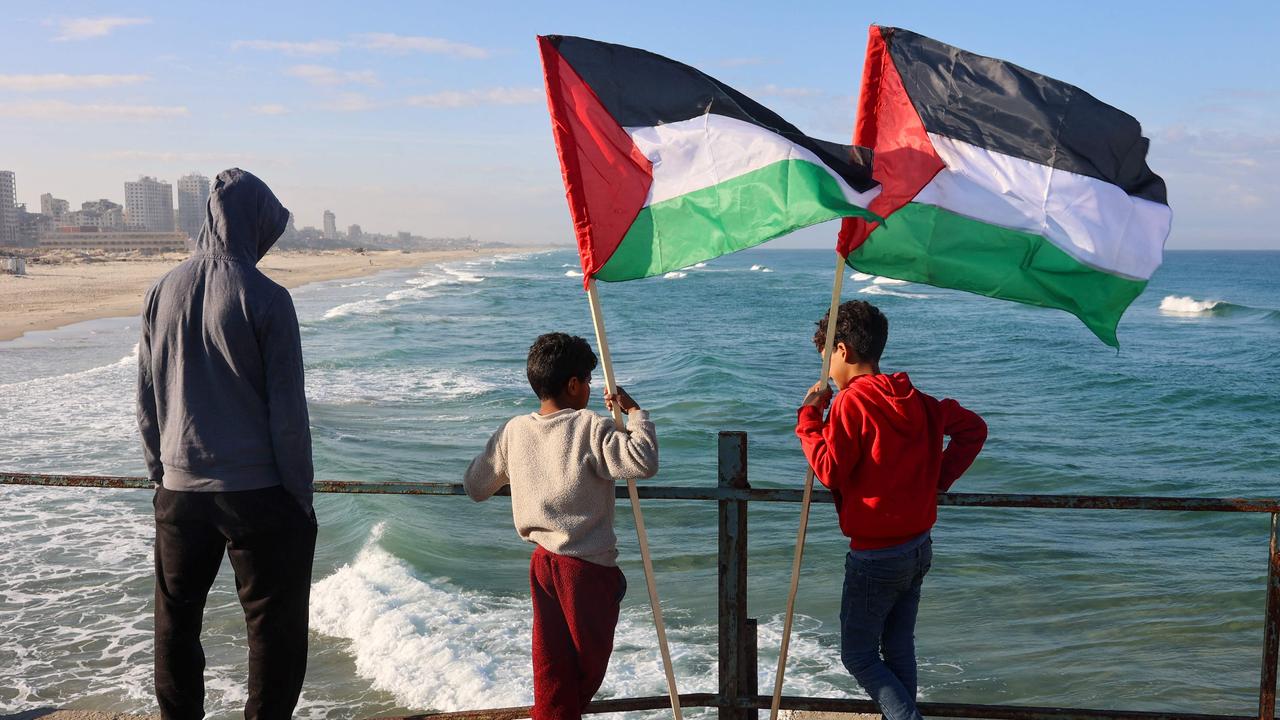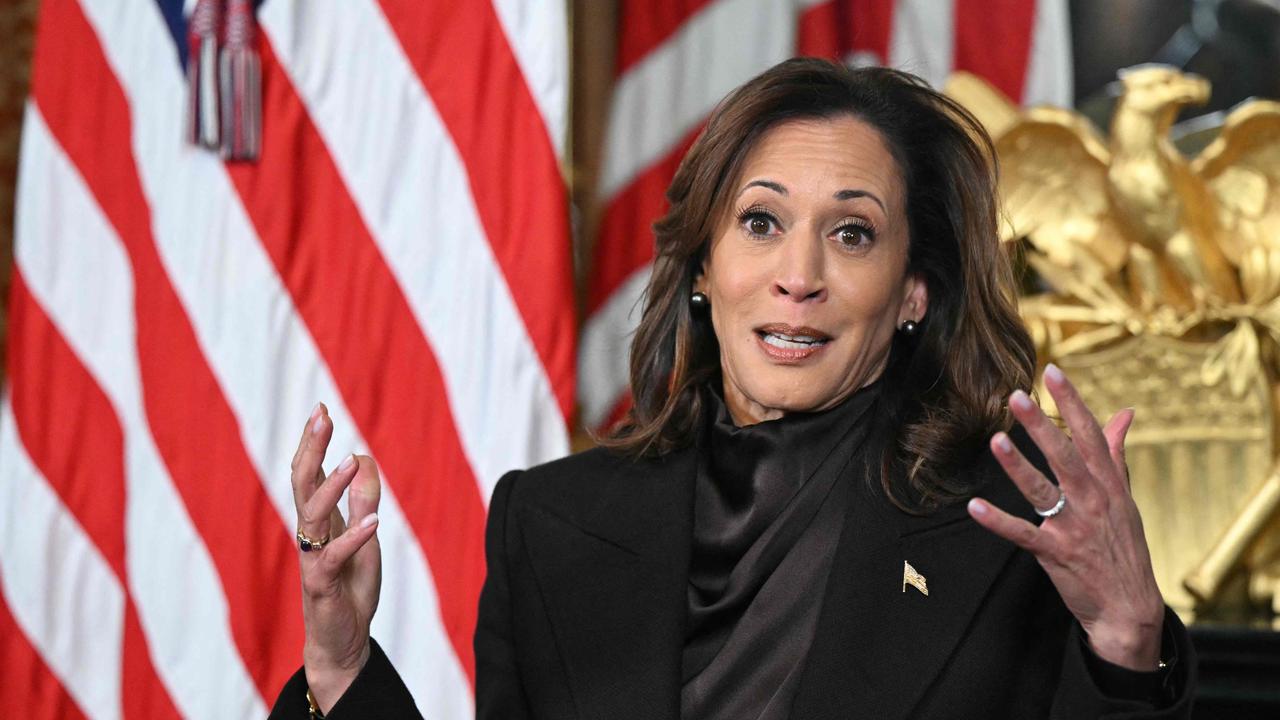How Brittney Griner’s release from Russia was secured by US negotiators
Months of dragged-out talks led to a final frenetic few weeks that ended in freeing the two-time Olympic basketball gold medallist.
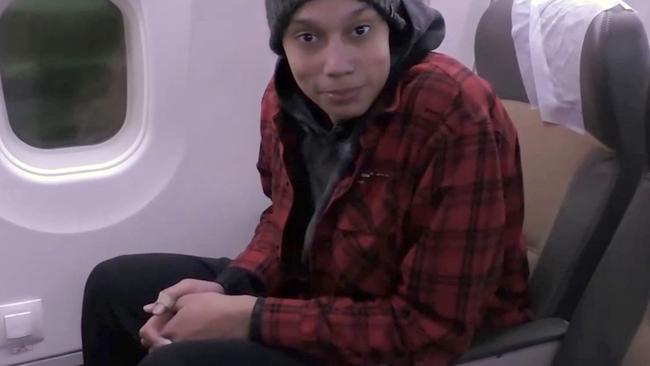
The exchange of detainees went down like a classic Cold War spy scene: Russia and the US facing off from a short distance, ready to whisk their person away. Only instead of a bridge in Germany in 1962, the location was a bright United Arab Emirates air base in 2022, and the trade was women’s basketball star Brittney Griner for Russian arms dealer Viktor Bout.
The monthslong events that led up to that moment reflect the deep-rooted tensions and contradictions in the US-Russia relationship since Moscow’s invasion of Ukraine. For US officials, the 294 days that spanned Brittney Griner’s detention to her release demonstrated both how far Russia was willing to go to punish the US for its support of Ukraine, but also the willingness of Moscow to negotiate, for a price.
When Ms Griner, 32, was detained after flying into Moscow’s Sheremetyevo Airport on February 17 — exactly one week before the Russian invasion of Ukraine — she frantically texted her agent Lindsay Kagawa Colas, telling her she didn’t even know where she was. Ms Colas, who recounted the episode while speaking on a panel in Washington earlier this week, said she told Ms Griner to use her phone to drop a pin displaying her location, which allowed them to track her to a police station just outside the airport and dispatch a Russian lawyer.
News of her arrest didn’t surface until weeks later, however, when it was reported by Russian state media. By then, the invasion of Ukraine was well under way, and Western allies, outraged by Russia’s aggression, imposed crippling sanctions on the government, its top industries and even on President Vladimir Putin himself, throwing diplomatic relations into a tailspin.
Over the next several weeks, the State Department and the White House said it was following Ms Griner’s case closely, working through multiple diplomatic channels, including the downsized US Embassy in Moscow. But the Russian government was uncooperative, often not responding to official US diplomatic visitation requests, US officials with direct knowledge of the deliberations said.
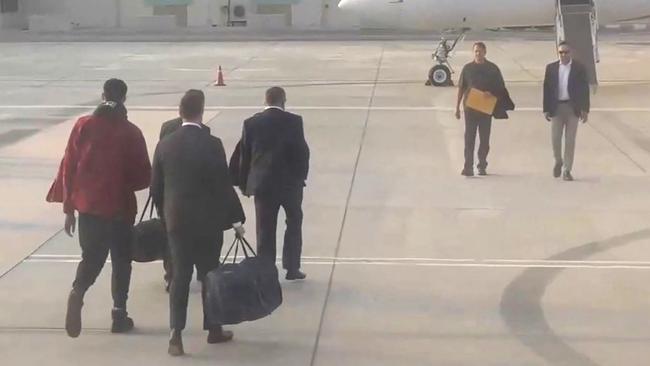
Then, suddenly, there was reason for optimism: On April 28, Trevor Reed, a US citizen and former Marine who had been detained in Russia since 2019 on assault charges, was released in a prisoner swap for Konstantin Yaroshenko, a Russian pilot convicted of conspiring to import cocaine.
On May 3, the US officially classified Ms Griner as “wrongfully detained” and vowed to work more aggressively to secure her release even as the legal case against her played out in a Russian courtroom.
Officials with the Biden administration had hoped that Mr Reed’s case might be the impetus needed to get Russia to agree next to a two-for-two swap that would secure Ms Griner’s freedom, as well as that of Paul Whelan, another American citizen being held.
But Russian authorities were temperamental in granting access to both imprisoned Americans, US officials said, frustrating negotiators and raising the temperature on already-simmering relations. Consular officials from the US Embassy in Moscow were able to visit with Ms Griner on the margins of her court hearing in Moscow in late May, according to the State Department, but the visits had become too inconsistent, drawing condemnation from Washington.
By July, the bureaucratic and logistical delays were a growing cause for concern for Ms Griner and her family. In a handwritten letter to Mr Biden, Ms Griner wrote: “As I sit here in a Russian prison, alone with my thoughts and without the protection of my wife, family, friends, Olympic jersey, or any accomplishments, I’m terrified I might be here forever.” Soon afterward Ms Griner, on advice of her lawyers, pleaded guilty, hoping for leniency. But in August, she was convicted and sentenced to nine years, just short of the maximum 10 sought by prosecutors.
While Ms Griner’s high profile brought greater awareness about American detainees abroad, it also raised questions about Mr Whelan’s fate. The former Marine, who has US, Irish, British and Canadian citizenship, was detained at a Moscow hotel in December 2018 by Russian authorities who alleged he was involved in an intelligence operation. He was convicted and sentenced in June 2020 to 16 years in prison in a trial US officials denounced as unfair. He has consistently denied the espionage charges.
The Biden administration consistently stressed its intention to bring both Americans home. The US had taken the extraordinary step of publicly pressing in late July what Secretary of State Antony Blinken called a “significant offer” for Ms Griner and Mr Whelan, which people familiar with the matter had said was a proposal to return to Russia the arms dealer Viktor Bout. Russia signalled in response that a two-for-one deal was unacceptable — which US officials say they had anticipated.
Bill Richardson, the former governor of New Mexico who runs a private organisation dedicated to hostage negotiations, visited Russia in the fall and discussed the possibility of a two-for-two swap that included Mr Whelan, according to a person with direct knowledge of the discussions. The Russians came back to American negotiators both in and outside the administration insisting that they wanted three or four prisoners released, the person said.
“Back and forth it went until it was one-for-one,” the person added. Despite Moscow’s hard-line stance over the fall, some US officials said they hoped the Russian government would be more inclined to cut a deal for both Americans after the midterm elections.
Urgency around Ms Griner’s case was also growing. On November 9, just one day after the US elections, Ms Griner’s lawyers confirmed she was being transferred to a Russian penal colony to begin serving her sentence, appearing to mark the start of a perilous new phase in her ordeal. Advocates emphasised the difficult conditions she would encounter there.
To get to a two-for-two deal, US officials said they offered various release options they thought might be of interest to Moscow, based on previous deals, but Russian negotiators didn’t bite on any of them. Instead, the US officials said, Russian officials continued to ask for something the US couldn’t give.
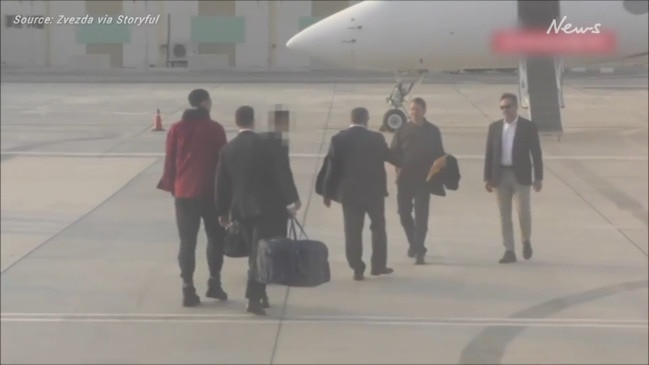
That something, or someone, was Vadim Krasikov, a Russian serving a life sentence in Germany for murder, according to people with knowledge of the discussions.
On November 29, a federal prosecutor in Manhattan went to a judge there and made an unusual, secret request, according to a subsequently unsealed document. Based on “significant policy interests,” the government asked the court to allow the US Marshals Service to remove Mr Bout from prison as early as December 2 and hold him for two weeks in case Mr Biden granted him clemency. If no clemency came in that time frame, authorities would return Mr Bout to prison.
Some outward signs of a shift were reflected in public statements. US officials started to shift their tone, no longer emphasising complaints about Russians refusing to negotiate in good faith. “We’ve been engaged with them. Other than that, I don’t think it’s useful for me to get into details,” Secretary of State Antony Blinken said in an interview at The Wall Street Journal’s CEO Council event on Monday.
Yet suspicions that Russia wouldn’t hold up its end of the bargain remained, and it wasn’t until Thursday, after a plane carrying Ms Griner landed at a UAE air base, that the conditional grant of clemency was completed, according to the White House. With the aircraft on either side of the tarmac, Mr Bout walked across to the Russian plane, and Ms Griner then crossed to the US plane.
Back in Washington, Cherelle Griner, Ms Griner’s wife, was at the White House. She had been invited there earlier this week for an early morning meeting Thursday with national security adviser Jake Sullivan to get updates on the situation. Cherelle Griner and President Biden were together in the Oval Office when Mr Biden was notified that Brittney Griner was secure.
The basketball player was then put through to the Oval Office and the president picked up and said “It’s Joe Biden. Welcome, welcome home!” Ms Griner’s return, a clear victory for negotiators who had pushed for her release, also highlighted the failure to return Mr Whelan. On Thursday, Mr Blinken said that he hadn’t been able to overcome Russian objections to freeing Mr Whelan.
The exchange also didn’t appear to signal a breakthrough for broader relations, a point reinforced in Moscow. Kremlin press spokesman Dmitry Peskov said following Ms Griner’s release that negotiations were only on the swap, and not on any broader issues between the two countries.
“Relations are in a sad state,” he said.
Warren P. Strobel, Catherine Lucey, Aruna Viswanatha and Rory Jones contributed to this article.
The Wall Street Journal

